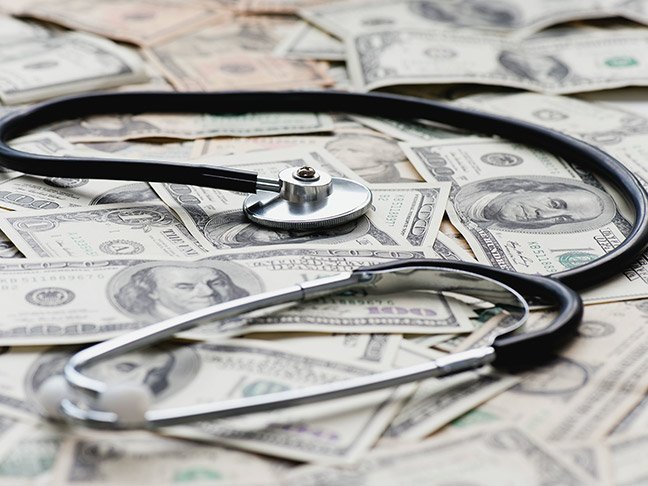My husband and I constantly struggle with finances. We live paycheck-to-paycheck at our house, but we’ve always made do. Like millions of other families, the second we accrue some savings, life happens, we deplete our nest egg, and are back to worrying about how to pay all the bills on time.
Our biggest surprise expense? Healthcare.
Last year, I worked at a local newspaper that provided my family with excellent health insurance. Even though I could hardly afford the deductible (who can?), we still had coverage for my kids, including my son whose hemophilia can cost up to $20,000 a month. With a family of five, this insurance was a huge relief.
Then I lost my job. We suddenly had no insurance, but flu season was coming anyway, and my son’s hemophilia still required constant maintenance.
For 30 days, we went without healthcare coverage. To say that it was stressful doesn’t begin to describe the level of fear that comes from knowing injury or illness could bankrupt your family.
I scrambled to get this straightened out as quickly as possible, but as fast as I could fill out forms and make phone calls, I still had to wait for the sluggish bureaucratic machine of health insurance companies.
First, I applied for end-of-year coverage through the Affordable Care Act (ACA), but without my regular income, we didn’t make enough money to afford the affordable insurance. The federal website told us to apply for Medicaid.
So, I did.
I spent two days making phone calls and sending emails to my former employer, the state Department of Health and Human Services (DHHS), and my writing clients in order to gather the required receipts, letters, and information. I had to show all of my income dating back weeks. I had to explain my son’s diagnosis. I had to prove that I was laid off. I had to get a statement from the unemployment office where I had applied for funds, even though I hadn’t actually started receiving anything yet.
It took forever. Then, DHHS denied us healthcare coverage.
Medicaid claimed that we were not poor enough, even though our new financial situation put us under the federal poverty line. At this point, my son’s hemophilia medicine was running low, and panic started to set in.
Next, I called my local hospital to ask about sliding scales and advocates to help me figure this crap out. There, I met a woman named Kara who was trained specifically in the ACA and how to navigate the site. With time running out to lock down coverage for 2018, I made a same-day appointment.
With Kara’s help, I was able to navigate the ACA system to secure coverage at a monthly premium that was indeed affordable but had a deductible so high I was already rehearsing the speech I was going to give my parents when I inevitably needed to ask for a loan—something my pride had never allowed me to do.
And despite securing health insurance for 2018, we still had a full month without coverage to survive. That’s when my son—whose hemophilia already keeps me up at night with worry—broke his foot.
We drove him to the ER where he got a bed, had X-rays, was given pain medication, and was patched up before being sent home. I was so relieved that he was going to be okay, but in the back of my head, I tallied up the bill I knew we couldn’t afford. His break required ’round-the-clock observation of his bleeding, and we flew through his medicine to keep his blood clotting properly—more money I didn’t have.
Then, since the universe is nothing if not unpredictable, we experienced another financial plot twist and were suddenly forced to give up our ACA-provided insurance.
Back to Medicaid. I called them and pleaded to find out why they denied us in the first place. It turned out that the DHHS caseworker who read my file had not calculated my new income level. Instead, she calculated my income at the level it was before I was laid off.
Miraculously, we were granted coverage, and they backdated it to the beginning of the month, which meant that the harrowing trip to the ER was fully covered.
Health insurance should not be more expensive than rent and food. It should be a right for every citizen in this country. My kids—and yours—deserve to have childhoods in which visiting a doctor is not a direct threat to their family’s ability to meet their basic needs. Here’s hoping we can get our collective sh*t together and fix this country’s healthcare problems in an efficient and meaningful way.
Photo: Getty
